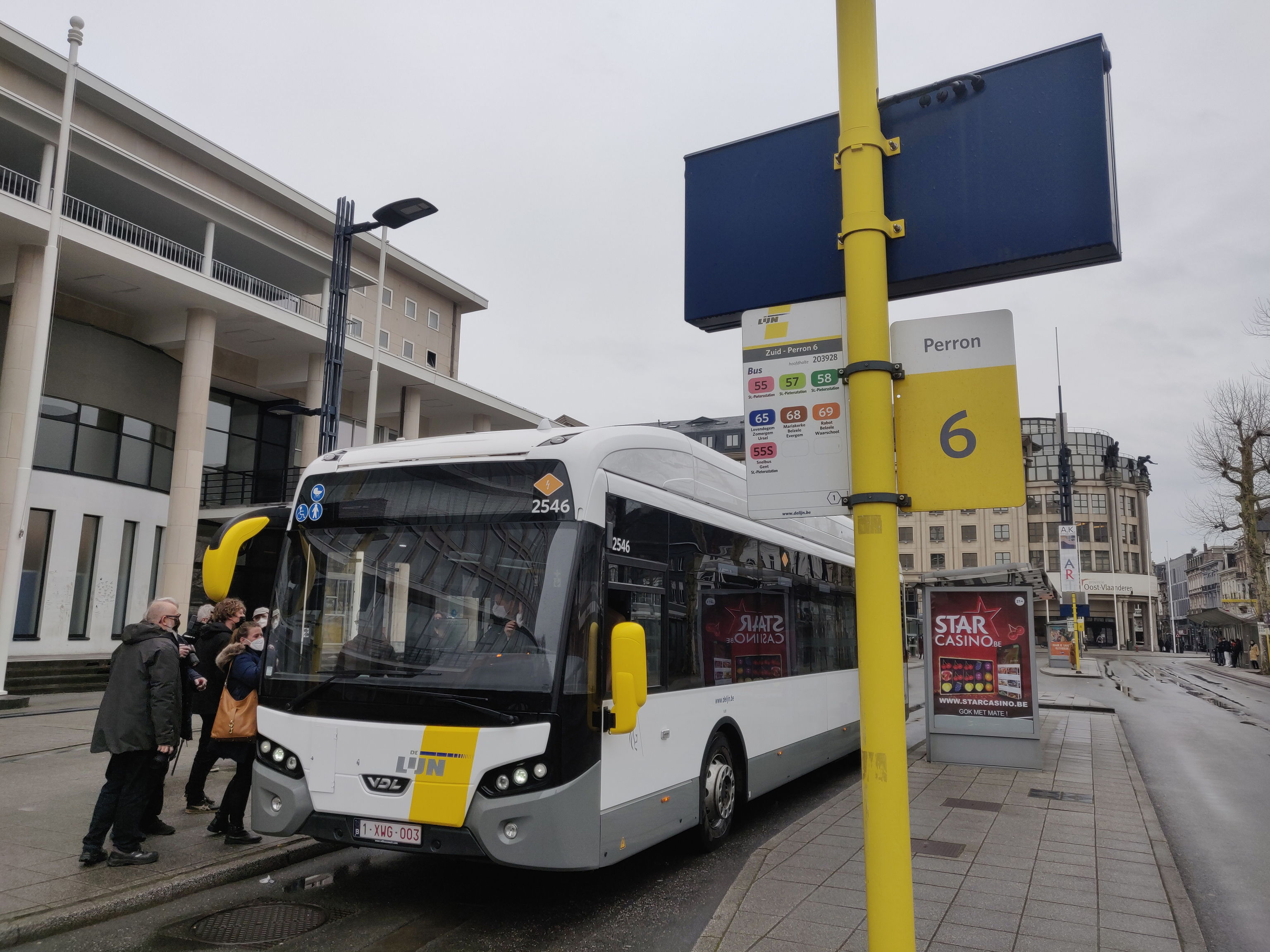De Lijn faces criticism over Chinese buses and abolished stops

The public transport reform of De Lijn, which comes into force tomorrow, has sparked outrage in Flanders, as it will result in the abolition of some 3,200 bus stops. Meanwhile, Flemish bus manufacturers have criticized the public transport company's order for 92 Chinese electric buses.
On Saturday, De Lijn will implement its so-called Basic Accessibility plan, which concentrates buses and trams on routes with higher demand, such as in cities. This reform means that travellers who want to commute to the suburbs or more remote areas will have to rely on flexible transport with on-demand buses combined with shared cars, bicycles, scooters and walking.
According to De Lijn, this will lead to the abolition of around 3,200 bus stops in Flanders. The newspaper De Tijd has calculated that no less than 3,800 stops will disappear and that dozens of Flemish municipalities will lose between a third and more than half of its bus stops.
Protests
In response, several mobility organisations and trade unions have announced protests on Saturday in each of the five Flemish provincial capitals. They cite lack of participation, the removal of stops, De Lijn's accessibility issues and lack of investment as reasons for the protests.
De Lijn itself claims that lack of funding is the main reason for the controversial reform. On Wednesday, the company called for 300 million euros in additional funding to realise the modal shift from cars to public transport.
Disappointed manufacturers
De Lijn has also been criticised for its decision to order 92 electric buses from the Chinese manufacturer BYD. Flemish competitors such as Van Hool and VDL, which have produced buses for De Lijn in the past, are "very disappointed", ABVV union secretary Hans Vaneerdewegh told VRT NWS on Friday.
Vaneerdewegh admits that BYD can produce the buses cheaper and faster, but says that buses made in Flanders are easier to repair and of better quality. De Lijn is also ignoring the social costs of ordering buses abroad, he adds: "When there is no work at Van Hool, its employees are put on temporary unemployment, for which our society foots the bill."
#FlandersNewsService | © BELGA PHOTO BO BOUILLAERT